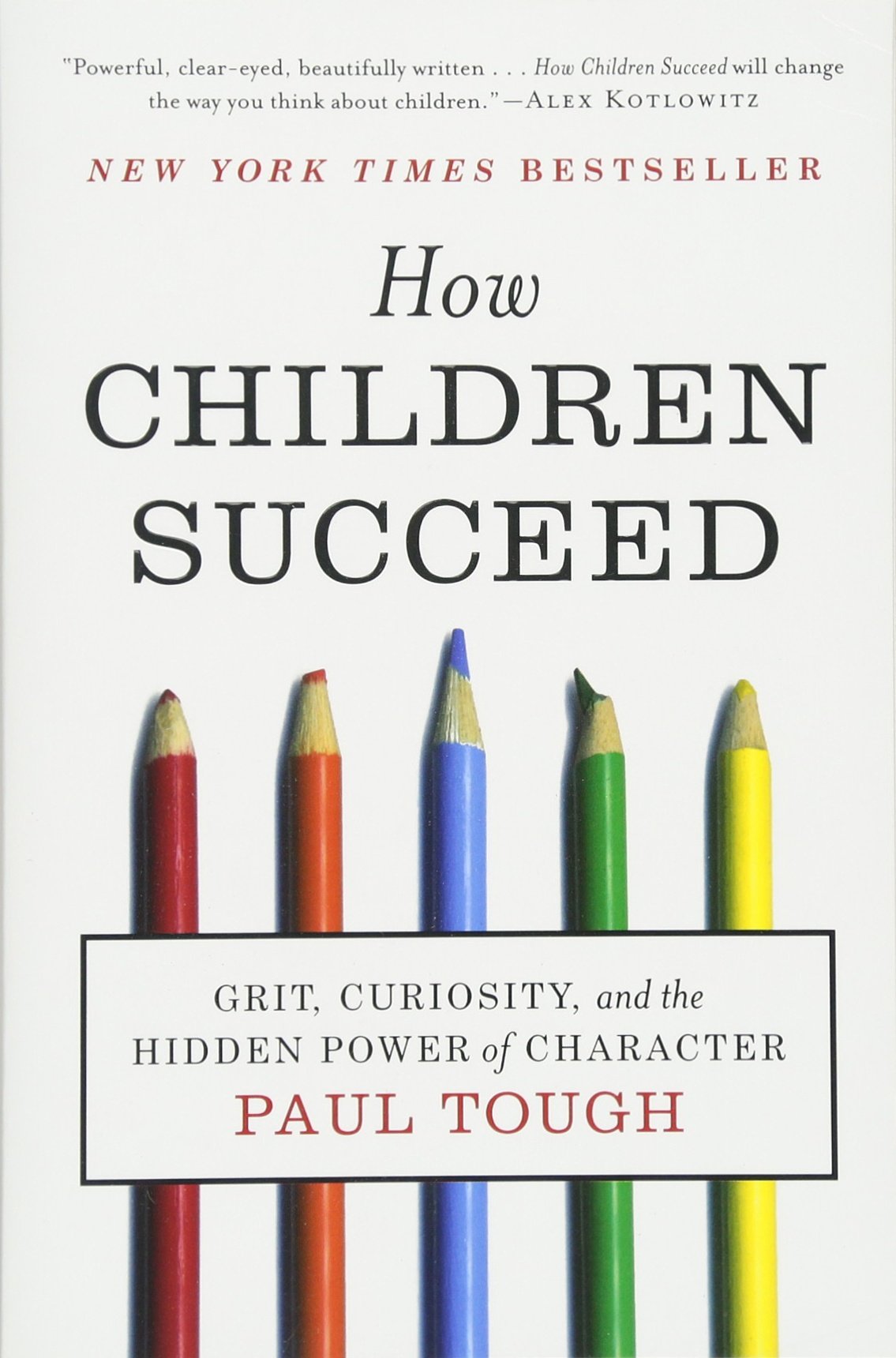How Children Succeed by Paul Tough

Schooling around the world today is mostly based on the “cognitive hypothesis”, the belief that cognitive skills are the most essential skills for success and the ones that schools should be focusing on. Many new programs and teaching methods have been developed to improve cognitive schooling in struggling schools. While these programs sometimes temporarily improve grades and test scores throughout K-12, they almost never improve any longer-term trends such as college graduation rates.
Increased attention has been paid in recent years to character and non-cognitive skills. Such skills include suppressing impulses, delaying gratification, staying focused on goals, avoiding procrastination, exerting effort in the absence of external incentives, building a mindset of growth and self-improvement, and approaching challenges with a sense of can-do optimism. Children who are rated highly in these traits not only have better grades in K-12, but they are also more likely to graduate college, have middle class incomes, avoid substance abuse, avoid run-ins with the law, avoid becoming single parents, and avoid premature death. In a virtuous cycle, people with these character traits appear to be able to succeed regardless of their environment. However, children from impoverished neighborhoods and dysfunctional families are consistently deficient in these traits, causing endless frustration for teachers trying to help them. To a lesser extent, these traits are also missing among the highly-pampered children of wealthy parents who engage in “helicopter parenting”.
Why does strength of character correlate so strongly with social class? Poor children grow up in a chaotic world in which they cannot fully trust anyone; they often don’t even have a secure emotional attachment to even their own mothers. Lack of trust and attachment puts a child’s stress response into permanent overdrive. Chronic stress stunts the development of children, with the executive functionality in the pre-frontal cortex being disproportionately affected. Poor children routinely become difficult students that make lots of bad judgments during adolescence and remain in poverty as adults.
If strength of character is so strongly influenced by the environment, it follows that character is malleable and possibly even trainable. Character appears to be a learned skill that is developed primarily by taking on adversity and overcoming it. In these challenges, success must be neither impossible nor guaranteed. Poor children who become the first in their families to graduate college usually give credit not to their schooling, but to seemingly minor things like extracurricular activities (chess clubs seem particularly popular), tutoring programs, and specific teachers who went beyond the call of duty for them. For many of these children, these situations were the first environments in which they felt fully secure and the first environments in which they ever felt like they had attained mastery in something. Attaining mastery in a skill often sets off a virtuous cycle in which children become more curious in developing other skills while also improving the grit needed to master them.
The key to building character is to subject children to challenges where success isn’t certain and failure has consequences, all while ensuring the overall environment feels emotionally safe and secure. Poor children are subjected to unwinnable situations from early childhood and quickly become discouraged from trying to actively improve their lives. On the flip-side, wealthy children are often shielded from adversity and failure from their parents, causing them to go through their entire childhoods without ever overcoming challenges that they can be proud of. The optimal middle way is for parents and teachers to create challenging and stimulating situations for children while at the same time remaining a positive and reassuring presence.
In the act of overcoming adversity on their own, children will develop critical character traits that will allow them to succeed in many other situations. Children with strong character skills become good students, diligent workers, law-abiding citizens, and dutiful family members as adults, all without anyone needing to pressure or coerce them into doing it.
